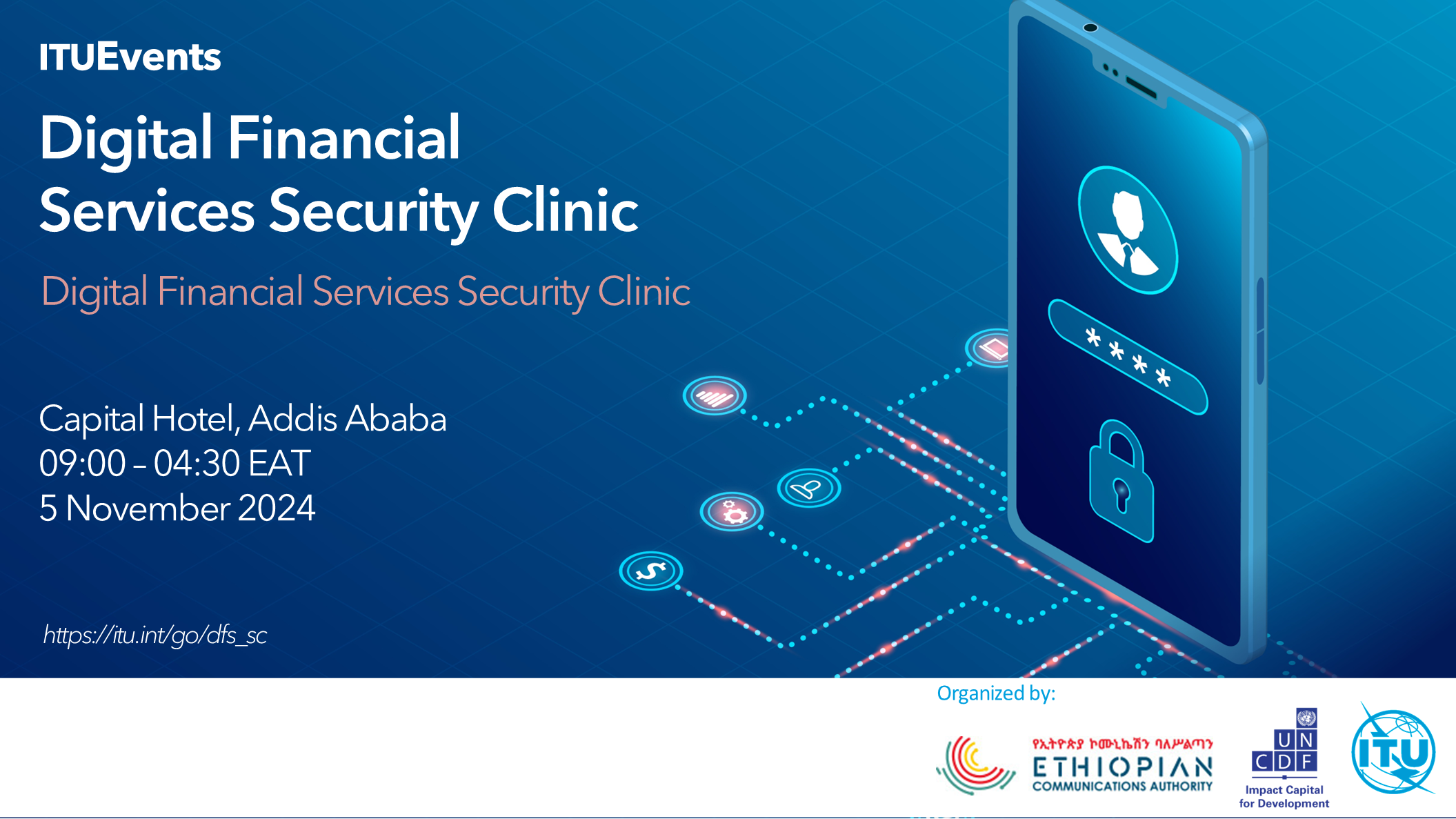
The event aligned with the 2022
ITU Plenipotentiary Resolution 204 and
WTSA Resolution 89, which advocate for the use of Information and Communication Technologies (ICTs) to promote financial inclusion. It aimed to provide key insights and practical guidance to DFS stakeholders in Ethiopia about the best practices that need to be adopted by regulators and DFS providers to secure the DFS applications and infrastructure.
The main objectives of the DFS Security Clinic were to:
- Provide a comprehensive overview of the evolving security threats that affect fintech and digital financial inclusion.
- Identify and share the technical and organizational security measures based on the ITU DFS Security Recommendations to mitigate threats.
- Provide an overview of the ITU DFS Security Lab and the practical guidance provided to regulators and DFS providers in developing countries for digital financial services security.
- Provide a platform for DFS stakeholders to share lessons learned, discuss fintech security, and adoption of the DFS Security Recommendations.
Target audience: The main audience for the DFS Security Clinic included representatives from telecommunications regulators, national cybersecurity agencies, central banks, financial service providers, banks, mobile network operators, fintech companies, IT security solution providers, relevant government ministries, and other stakeholders.